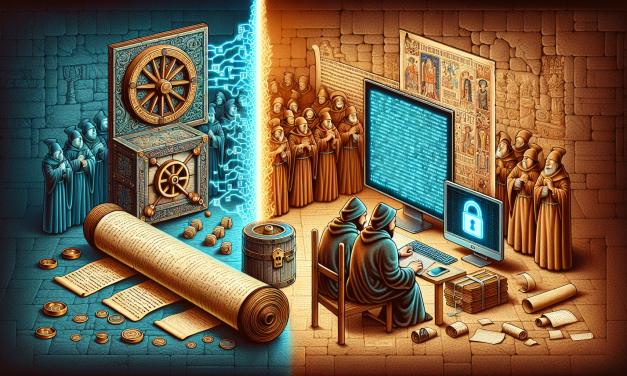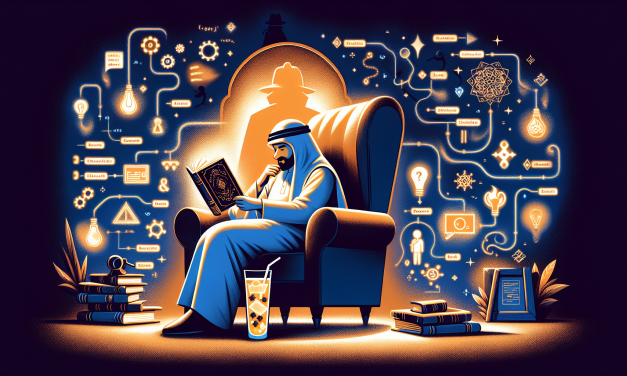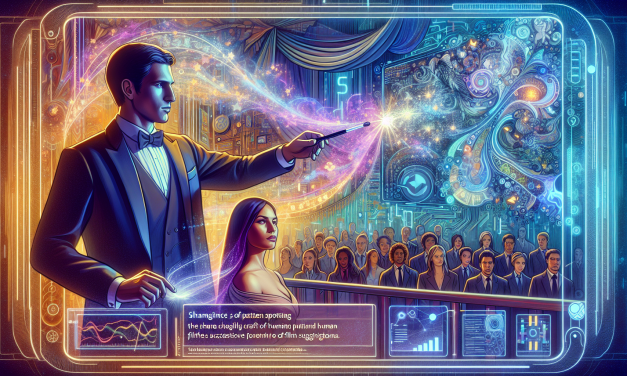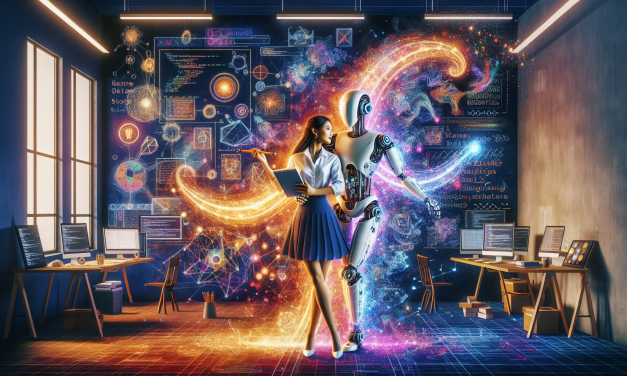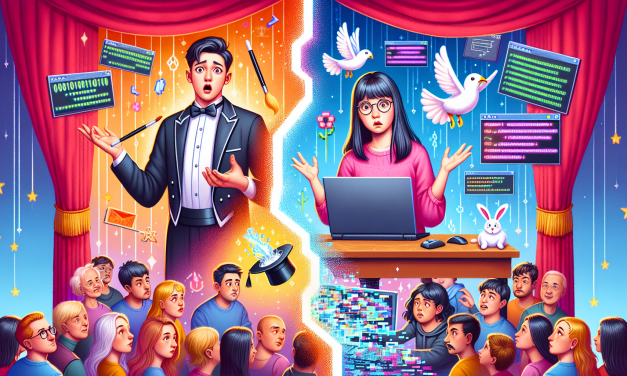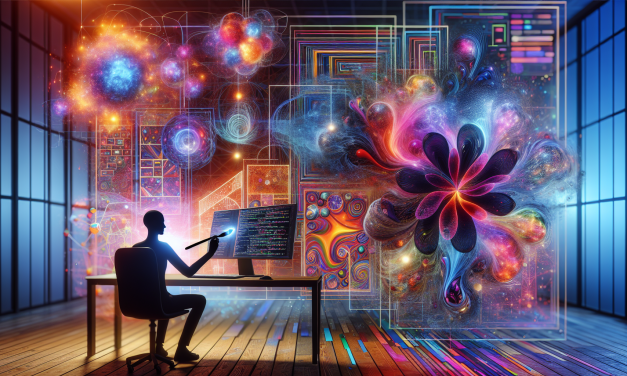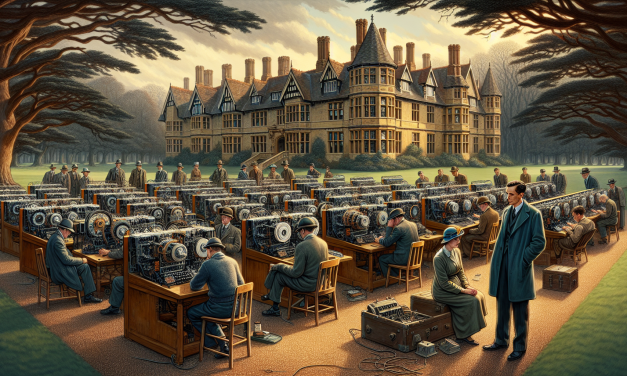Category: General
How Word Games Unlock the Coder’s Mind: Algorithms...
Posted by Jim Christian | Jul 28, 2025 | General | 0
Coding Careers Today: Exploring Limitless Paths Wh...
Posted by Jim Christian | Jul 23, 2025 | General | 0
How Star Wars’ “Used Universe” a...
Posted by Jim Christian | Jul 22, 2025 | General | 0
Rube Goldberg – Thinking Like a Coder
Posted by Jim Christian | Nov 22, 2024 | General | 0
Why Switching Pays Off: The Surprising Logic Behind the Monty Hall Problem and Everyday Decisions
by Jim Christian | Sep 26, 2025 | General | 0
Step into the classic game show dilemma known as the Monty Hall Problem—a puzzle that challenges our intuition about probability and decision-making. Discover why switching your choice of door dramatically increases your chances of winning, and explore how this counterintuitive logic appears in everyday situations like medical testing, job interviews, and even social media scrolling. This blog unpacks how our brains often misjudge probability and offers practical tips for sharpening your intuition, helping you make smarter decisions in a world full of hidden information and surprising surprises.
Read MoreAncient Secrets and Modern Codes: How Hidden Messages Inspired Today’s Digital Security
by Jim Christian | Sep 25, 2025 | General, History, Technology | 0
Long before digital encryption, people used clever tricks to keep their messages secret. From Julius Caesar’s simple letter shifts to monks hiding codes in poems, ancient ciphers scrambled words like costumes at a secret party. Meanwhile, steganography hid messages in plain sight—on wax tablets, shaved heads, or invisible ink—so only the right eyes could find them. These historic techniques laid the groundwork for today’s computer security, reminding us that protecting information is a timeless blend of math, creativity, and human smarts.
Read MoreTangrams and Computational Thinking: How Seven Simple Shapes Teach Big Coding Skills
by Jim Christian | Sep 24, 2025 | Games, General, STEM | 0
Discover how the ancient puzzle of tangrams — just seven simple shapes with strict rules — becomes a powerful tool for developing computational thinking skills. Learn how the constraints of tangrams spark creativity, enhance pattern recognition, and mirror the systematic problem-solving and mental modeling essential in coding and programming. Dive into the fascinating connection between this timeless game and the art of writing elegant, efficient code.
Read MoreMastering Mathematical Games like Nim and Hex: Unlocking the Secrets of Logical Thinking and Computational Strategy
by Jim Christian | Sep 22, 2025 | Games, General, STEM | 0
Discover how classic mathematical games like Nim and Hex reveal powerful patterns and strategies that sharpen your logical thinking and computational skills. Learn why mastering these simple yet profound games helps you think like a computer scientist—recognizing invariants, spotting winning moves, and building mental algorithms that apply far beyond the game board. Explore how these timeless puzzles connect to modern computer science, artificial intelligence, and everyday problem solving, turning play into a superpower for your mind.
Read MoreHow Mystery Detectives Teach Us to Think Like a Coder: Unraveling Clues with Computational Thinking
by Jim Christian | Sep 21, 2025 | General | 0
Discover how classic mystery detectives like Hercule Poirot and Sherlock Holmes use the same logical, step-by-step thinking as computer programmers. Explore how asking the right questions, recognizing patterns, using the process of elimination, and building mental flowcharts mirror coding techniques. Uncover how solving mysteries is really about applying computational thinking—breaking down complex problems, testing hypotheses, handling false clues, and converging on the truth. Dive into this fascinating blend of detective work and coding logic that reveals how reading your favorite mysteries can sharpen your problem-solving skills and teach you to think like a coder.
Read MoreHow Breaking Enigma Illuminates the Power of Computational Thinking and Teamwork
by Jim Christian | Sep 20, 2025 | General | 0
Discover how the brilliant minds at Bletchley Park used computational thinking to crack the seemingly unbreakable Enigma code during World War II. This fascinating story reveals how Alan Turing and a diverse team of mathematicians, linguists, and puzzle experts combined logic, pattern recognition, and teamwork to develop the world’s first codebreaking computer—the Bombe. Their groundbreaking work not only helped shorten the war but also laid the foundations for modern computing and artificial intelligence. Learn key lessons from their persistence, collaboration, and clever problem-solving that still inspire today’s coders and thinkers.
Read MoreHow Magic and Algorithms Reveal the Power of Pattern Recognition to Transform the Ordinary into the Extraordinary
by Jim Christian | Sep 18, 2025 | General | 0
Discover how magicians and algorithms both master the art of pattern recognition to create seemingly magical experiences. From reading subtle human behaviors to analyzing vast data sets, this blog explores how spotting hidden patterns can unlock powerful skills in coding, magic, and everyday life. Learn practical exercises to sharpen your observation, think like a coder, and see the world through the eyes of a master pattern spotter.
Read MoreHow to Harness Your Human Creativity and AI’s Power for Unstoppable Project Success
by Jim Christian | Sep 17, 2025 | General | 0
Discover how to unlock the full potential of your creative projects by teaming up with AI. This blog explores the perfect partnership between your unique human intuition and AI’s lightning-fast idea generation, pattern recognition, and research skills. Learn when to let AI take the lead, when to rely on your irreplaceable human superpowers like emotional insight and cultural awareness, and how to dance seamlessly between the two. Through real-world examples, find out how to harness this dynamic duo for everything from storytelling and game design to coding and education. Embrace a future where humans and AI work together to create smarter, richer, and more meaningful projects.
Read MoreWhen Code and Magic Go Wrong: Lessons in Graceful Troubleshooting and Creative Problem-Solving
by Jim Christian | Sep 15, 2025 | General | 0
Discover how magicians and programmers share the art of graceful problem-solving when things go wrong. From handling unexpected glitches in code to recovering smoothly from a failed magic trick, learn why embracing mistakes can spark creativity and build resilience. This post explores the mindset, techniques, and curiosity that turn errors into opportunities, helping you become a sharper, more confident coder—and maybe even a bit of a digital magician.
Read MoreHow to Create Stunning Digital Art by Collaborating with Code and AI
by Jim Christian | Sep 14, 2025 | General | 0
Discover the magic where human creativity meets technology in digital art. Learn how simple code and AI combine to generate mesmerizing patterns, wild textures, and endless artistic possibilities. This guide explores how anyone can start blending mathematical precision with AI’s organic unpredictability to create unique, stunning artworks without needing to be a coding expert. Embrace your role as the conductor of this creative collaboration and unlock new forms of expression with just a few lines of code and accessible AI tools.
Read MoreHow Alan Turing and Bletchley Park’s Codebreakers Launched the Digital Age Through Logic, Teamwork, and Ethical Choices
by Jim Christian | Sep 13, 2025 | General | 0
Discover the untold story of how Alan Turing and the diverse team at Bletchley Park cracked the German Enigma code during World War II. This breakthrough combined brilliant logical thinking, innovative machines, and teamwork to not only change the course of history but also lay the foundation for modern computing and digital technology. Explore the ethical dilemmas they faced and the enduring lessons their work offers for today’s coders and tech innovators.
Read MoreHow Pong’s Simple Game Design Revolutionized Interactive Entertainment and Coding Principles
by Jim Christian | Sep 12, 2025 | General | 0
Discover how Pong, the simple 1972 game of two paddles and a bouncing ball, sparked a revolution in interactive entertainment. Learn why its immediate feedback, elegant design, and simple rules laid the foundation for billions of dollars in gaming and shaped human-computer interaction forever. Pong’s legacy lives on in every responsive app, game, and digital experience we enjoy today.
Read More
Available now!
"Programming needs a grasp of the basics – coding – so here’s the ideal start … An excellent book.” - Parents in Touch


Recent Posts
- Why Switching Pays Off: The Surprising Logic Behind the Monty Hall Problem and Everyday Decisions
- Ancient Secrets and Modern Codes: How Hidden Messages Inspired Today’s Digital Security
- Tangrams and Computational Thinking: How Seven Simple Shapes Teach Big Coding Skills
- Mastering Mathematical Games like Nim and Hex: Unlocking the Secrets of Logical Thinking and Computational Strategy
- How Mystery Detectives Teach Us to Think Like a Coder: Unraveling Clues with Computational Thinking


